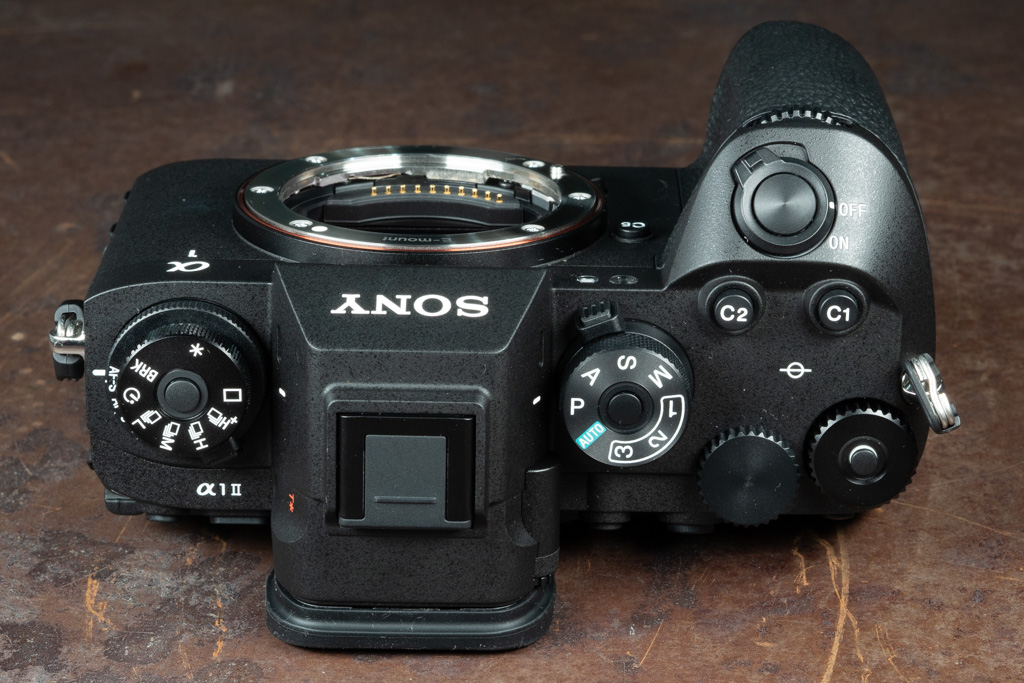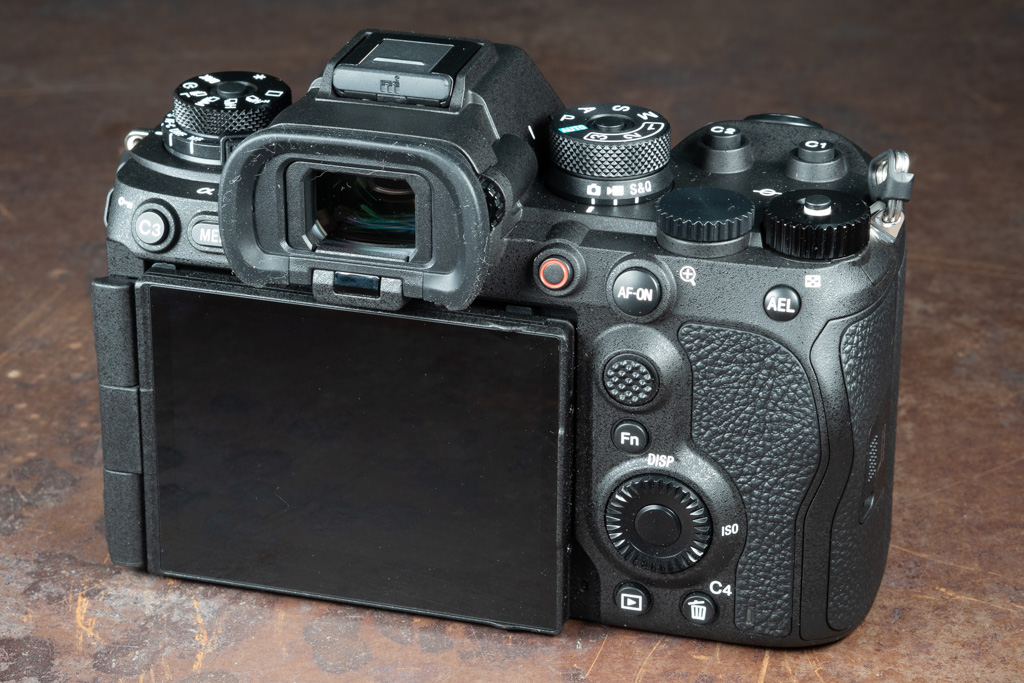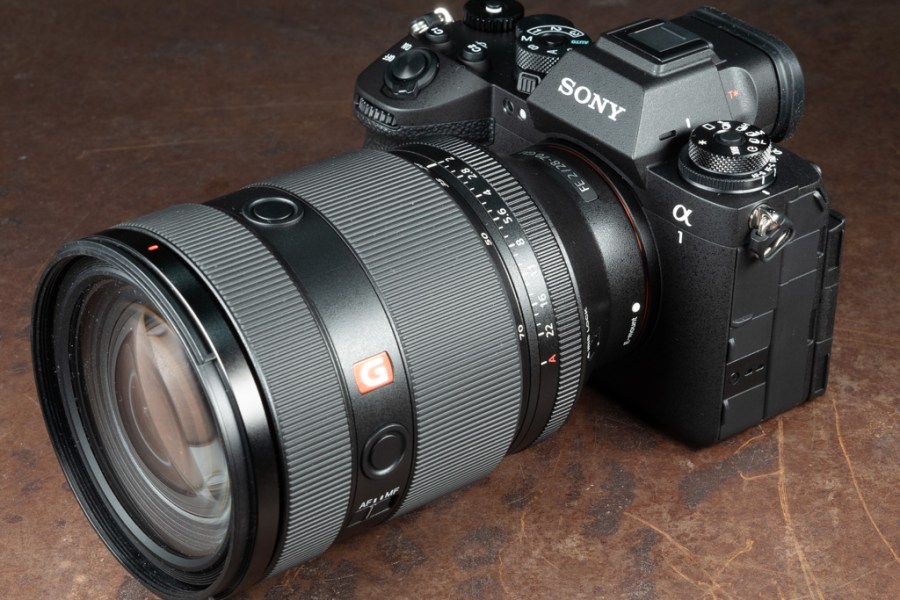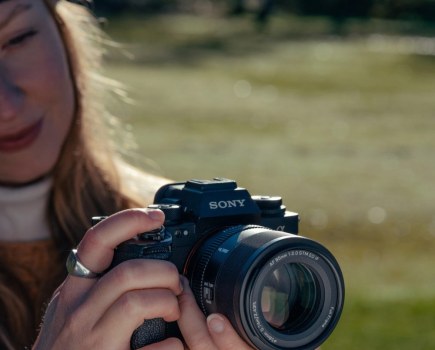Sony has announced its new professional full-frame flagship camera, the Sony Alpha A1 II. In essence, this takes the key capabilities of the original Alpha 1 – 50MP still image shooting at 30 frames per second, and 8K 30p video recording – and places them into the same body as last year’s ground-breaking Alpha A9 III. Naturally, all of the firm’s latest technologies are built-in, too. On paper at least, this makes it the best Sony camera to date.
Sony Alpha A1 II at a glance:
- $6500 / £6300 body-only
- 50MP full-frame stacked-CMOS sensor
- 30 frames per second shooting
- 8K 30p video recording; 4K 120fps with 1.1x crop, 4K 60fps from full sensor width
- 5-axis in-body stabilisation: 8.5-stop centre, 7.0-stop edge
- 9.44m-dot, 0.9x, 120fps OLED viewfinder
- 3.2in, 2.1m-dot 4-axis multi-angle LCD
Designed for professional photographers shooting subjects such as sports, nature, news, and portraits, or pro creators shooting both stills and video, the A1 II has a pretty impressive spec. It’s built around a 50.1MP full-frame stacked CMOS sensor, which is coupled with a Bionz XR processor and Sony’s AI processing unit. Compared to the original A1, this promises improved exposure, colour, and auto white balance.
There are some welcome updates to the autofocus, too. The system boasts 759 selectable focus points, with 92% coverage and the ability to operate in low light of -4 EV. New XS and XL focus area sizes are available, plus the option to set three custom focus areas with user-specified heights and widths.
In a long-overdue move, Sony has finally brought its subject detection system up to date, with a new Auto mode that can understand the subject type automatically, rather than needing it to be set in advance. Otherwise, the subject detection is the same as on the Alpha A9 III, being able to recognise humans, animals, birds, cars, trains, airplanes, and insects. Sony is promising a 30% – 50% improvement in subject detection performance over the original Alpha A1, thanks to the AI processor.

The A1 II also gains Sony’s best-ever in-body image stabilisation. It’s rated for 8.5 stops of shake reduction in the centre of the image, and 7.0 stops at the edge, compared to 5 stops for the original A1. There are updates for video too, with both Active Mode IS and Framing Stabiliser IS on board.
Key video features include 8K recording at 30fps, 4K 120fps with a 1.1x crop, and 4K at 60fps from the full sensor width. Along with Sony’s standard S-Log 3 and S-Cinetone options, the camera can store 16 LUTs for custom colour output. Subject detection AF is available during video recording.
In terms of body design, the A1 II looks almost exactly the same as the A9 III. This means it’s wider than the A1, with a much-improved handgrip and more space for your fingers next to the lens. It boasts a large, detailed 9.4m-dot, 0.9x electronic viewfinder and a 4-axis LCD that combines both tilting and side-hinged vari-angle mechanisms. It’s also compatible with the same VG-C5 vertical grip.

Pro-spec connectivity is built-in, with 2.4GHz / 5GHz Wi-Fi, 2.5Gbps wired LAN, and Superspeed (10Gbps) USB 3.2. The camera will come with a new USB-C BC-ZD1 dual battery charger, and a new DC-C1 DC Coupler will also be available to power the camera via a dummy battery without occupying the USB-C port.
All this technology doesn’t come cheap, though. The Sony Alpha A1 II is set to cost £6300 body-only when it goes on sale in late November. That’s significantly more than either of its clearest rivals, the Nikon Z8 and Canon EOS R5 Mark II. At first sight, this could be an uncomfortable position for Sony, as it’s far from clear whether the A1 II offers any killer feature to justify the price.
Follow AP on Facebook, X, Instagram, YouTube and TikTok.
Sony Alpha A1 II full specifications
| Sensor | 50.1MP EXMOR RS stacked CMOS, 35.9 x 24mm |
| Output size | 8640 x 5760 (50MP), 5616 x 3744 (21MP), S: 4320 x 2880 (12MP) |
| Focal length mag | 1.0x |
| Lens mount | Sony E |
| Shutter speeds | 1/8000sec – 30sec (mechanical); 1/32,000sec – 30sec (electronic) |
| Sensitivity | ISO 100-32,000, ISO 50-102,400 extended |
| Exposure modes | PASM, Auto, 3x custom |
| Metering | Multi, centre-weighted, spot, average, highlight |
| Exposure comp | +/-5EV in 0.3EV steps |
| Continuous shooting | 30fps (14-bit, 153 frames) |
| Screen | 3.2in, 2.1m-dot 4-axis multi-angle |
| Viewfinder | 9.44m-dot, 0.9x OLED |
| AF points | 759 |
| Video | 8K 30fps; 4K 60fps (full-frame); 4K 120 (1.1x crop); |
| External mic | 3.5mm stereo, multi-interface shoe |
| Memory card | 2x CFexpress A/UHS-II SD dual slots |
| Power | NP-FZ100 Li-ion |
| Battery life | 420 frames (EVF), 520 frames (LCD) |
| Dimensions | 136.1 x 96.9 x 82.9 mm |
| Weight | Approx 743g |






